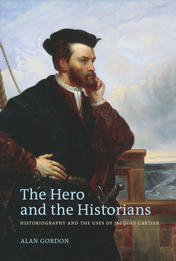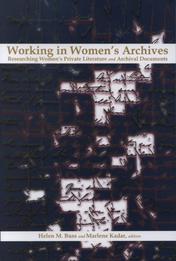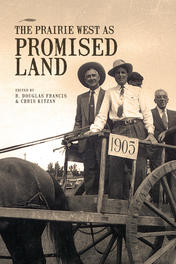Historiography
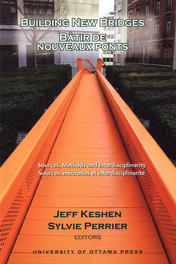
Building New Bridges - Bâtir de nouveaux ponts
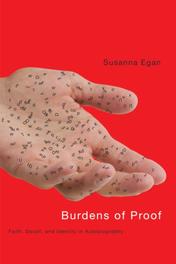
Excerpt from Chapter 1, Burdens of Proof by Susanna Egan
From Chapter 1 Doubting Thomas: The Implications of Imposture in Autobiography
This book is about imposture in autobiography, which I define as a serious disconnect between the author as a person alive in the world, pre-text, before any story emerges, and the written life, what I am calling the textual identity. Imposture, in other words, is not fiction and is not even the fictionalizing of stories based on truth. Nor is it small lies such as creep into every personal story because the story sounds better that way. Nor is it lapses or distortions of memory, with which honest autobiographies are replete. Imposture is distinct from all of these because it is a pretense; impostors are frauds, fakes, plagiarists, and phonies. They claim lives they have not lived, experiences they have not had, and identities that belong to other people. They do so for many reasons and often with significant success, often, but not always, causing real damage in the real world. However, though some of the cases I examine anger me, my project is not simply a moral one; rather, it sets out to explore histories of faith and of doubt. What do we believe, and why? (Why, for instance, do we believe that regular autobiography tells the truth, or any kind of truth?) What leads us to doubt, and how do we excavate the truth that is eluding us? The impostor is like the Wizard of Oz, just a little person creating big effects from a secret hiding place. Part of my pleasure with this work has been flinging back the curtain with a triumphant “aha! ” but part has also been working with the knowledge that all autobiography surely performs aspects of identity—which I understand as those partial, temporary, certainly elusive elements of self as one is perceived or as one feels oneself to be. How is imposture so different? Does it adopt the wrong posture? Does it hide the unacceptable secret?
I have always had a soft spot for Doubting Thomas. He was a faithful disciple through difficult times, prepared to die with Jesus if need be (John 11: 16), but he found stories of Jesus¿ resurrection just over the top. His faith could not go that far: he needed proof. For Thomas, proof meant a physical body and physical wounds (John 20: 24-29). Though all the gospels list Thomas as among the twelve, only John's—by far and away the least literal—develops this story of Thomas's doubt. For me, this doubt would have less impact if it appeared among the more grounded biographical narratives of Matthew, Mark, or Luke. (Indeed, who remembers Matthew's throwaway line at 28: 17 that some disciples were doubtful?) The full story of Thomas's doubt appears only in John¿s gospel; and appears, furthermore, at a point when we as readers have given ourselves over to the impact of a story that does not depend on fact for its power. Thomas's call for factual proof is a shock. He doubts at the very point where everyone else is carried away with excitement. Their story is thrilling and astonishing (Jesus has risen from the dead), but Thomas hesitates and asks for proof. So Doubting Thomas is the patron saint of my present work because his story goes to the heart of my concerns: How and why do astonishing stories arise, and with what effects? How, and why, and with what effects, are they called into question?
From Chapter 3 Sensational Identities: Made in the Media
I did not read A Million Little Pieces when it came out or even when it became a bestseller. I was immersed at the time in the reading required for classes and research, so I depended on reviews and discussion for many books that were attracting the attention of friends and neighbours. However, by February 2006, I noticed that we were into week five of the scandal that had followed James Frey's autobiography after it was shown to be a tissue of lies. My desk soon became littered with printouts from the links from the links on the Internet. Family and friends were e-mailing these sites to me on a daily basis, an international Web of our own for gossip and for sharing news. .. . The extent of the scandal was quite astonishing. Colleagues who knew I was interested in imposture began accosting me on the stairs, in the washroom, and at the water cooler wanting to know if I was having fun. (Yes, I would be having fun if I could keep up. ) The Frey scandal opened up for all to see the kinds of issues that had been concerning me for a while. “Do you think, ” Michelle, my massage therapist, asked, “that we should be reading memoir the same way we read fiction? For me, ” she said, “the two are quite different because I believe what I read in memoir. I'm not reading a fictional story, I'm reading about a real person. ” Exactly the kind of question I had been working with. Clearly, I had to do some solid research here—at least as solid as Michelle's—and read the book itself. “What on earth do you want this one for?” asked my friend at special orders in the bookstore, clearly implying that my habits tend to be more salubrious. “Are you buying this one in spite of yourself?” asked the woman at the till, whom I don't know at all. After all the hype, I fell asleep within thirty pages. However, serious research is always a hard slog, and my interest in imposture is more than a little connected to my own fears about being an impostor myself. As I approached retirement I took comfort in a friend's kind reassurances that if I got away with it for just a little while longer, I'd have had "them" fooled.
